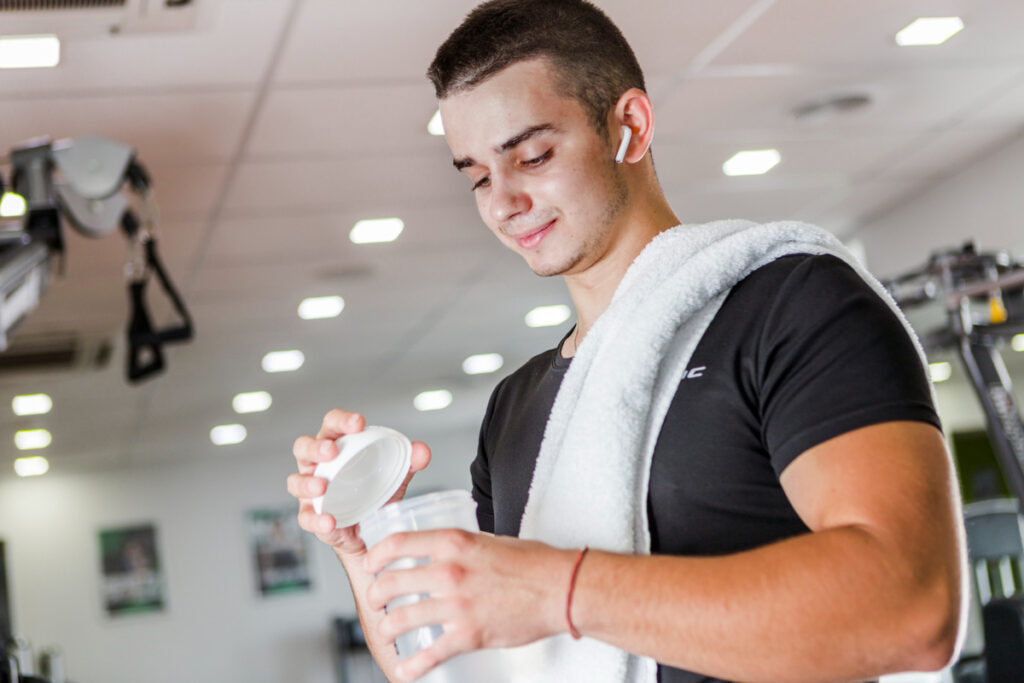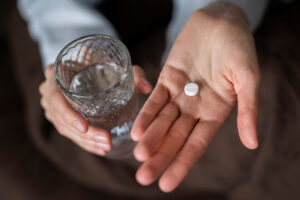Does creatine cause erectile dysfunction?
As creatine supplements gain popularity among athletes and gym-goers, concerns about their possible impact on sexual health have surfaced.
Some men fear that this popular supplement may interfere with hormonal balance or lead to issues like erectile dysfunction.
This article delves into the scientific evidence, physiological mechanisms, and common misconceptions to clarify whether creatine poses a real threat to male sexual performance.
Does Creatine Cause Erectile Dysfunction?
The concern that creatine may cause erectile dysfunction (ED) has largely emerged from anecdotal reports and misconceptions about how supplements affect hormone levels.
Creatine is a naturally occurring compound stored in muscles and used as a quick source of energy during high-intensity activities.
While some users report changes in libido or performance, current scientific studies have not established a direct causal link between creatine and ED.
Clinical trials examining creatine supplementation typically focus on athletic performance, body composition, and safety, with no consistent findings of adverse effects on erectile function.
In fact, some research suggests that creatine may even support testosterone levels under certain conditions.
Therefore, while individual experiences may vary, the claim that creatine directly causes ED lacks robust scientific backing.
How Creatine Affects the Body
Creatine plays a critical role in the production of adenosine triphosphate (ATP), the primary energy currency of muscle cells.
By increasing the phosphocreatine stores in muscles, creatine helps regenerate ATP more rapidly during intense exercise.
This supports improved strength, endurance, and recovery, which is why it is widely used by athletes and fitness enthusiasts.
Creatine is also found naturally in foods like red meat and fish, and the body synthesizes it from amino acids.
Supplementing with creatine typically results in water retention within muscle cells, a process known as cellular volumization.
This can lead to weight gain, but it is not associated with hormonal disruptions that could impair erectile function.
Testosterone, Hormones, and Sexual Function
Testosterone is the primary hormone responsible for regulating libido, erection quality, and overall male sexual health.
Some concern around creatine stems from a misunderstanding that it might suppress testosterone or disrupt hormonal pathways.
However, most research indicates the opposite, with studies showing that creatine may increase dihydrotestosterone (DHT) levels in certain contexts.
DHT is a potent androgen that contributes to sexual function, although excess levels may be linked to hair loss.
One study involving rugby players found a significant rise in DHT levels after creatine loading, without any decline in total testosterone.
Still, the long-term implications of this hormonal shift are not fully understood and appear to vary by individual.
Importantly, no clinical data supports the idea that these changes negatively impact erectile function.
Reported Side Effects of Creatine Use
Creatine is generally considered one of the safest and most extensively studied supplements available.
The most common side effects include gastrointestinal discomfort, muscle cramping, and water retention, especially during the loading phase.
There is no credible evidence linking creatine to kidney damage or reproductive harm in healthy individuals using recommended doses.
Despite online claims, erectile dysfunction is not listed among the recognized adverse effects of creatine in peer-reviewed medical literature.
Concerns about ED often stem from unrelated lifestyle factors or misuse of other performance-enhancing drugs.
It’s worth noting that excessive supplementation, dehydration, or use in combination with anabolic steroids may introduce additional health risks.
These scenarios, however, are not representative of responsible creatine use.
Psychological and Lifestyle Factors Behind ED
Many cases of erectile dysfunction are rooted in psychological or lifestyle-related causes rather than specific supplements.
Stress, performance anxiety, depression, and fatigue can all diminish sexual performance, regardless of creatine use.
Additionally, overtraining or an obsession with physical appearance can lead to low libido and hormonal imbalances.
Poor sleep, inadequate nutrition, and alcohol or drug use are also common contributors to ED in otherwise healthy men.
If someone begins creatine supplementation during a period of stress or intense training, they may mistakenly attribute ED symptoms to the supplement.
Addressing these broader health and wellness factors is often more effective than blaming a single dietary addition.
Who Is Most at Risk?
While creatine is safe for most people, certain users may be more prone to issues that indirectly affect sexual function.
Teenagers and young men under 18 should avoid supplements unless advised by a healthcare provider due to ongoing hormonal development.
Individuals with preexisting kidney conditions or those taking medications that affect renal function should also proceed with caution.
In rare cases, stacking creatine with other performance enhancers like anabolic steroids could lead to hormonal imbalances or testicular suppression.
Dehydration, a common issue when creatine is used without proper fluid intake, may impair overall performance and energy levels, including in the bedroom.
Awareness of these risk factors helps ensure that creatine is used safely and appropriately.
How to Support Sexual Health While Supplementing
Maintaining optimal sexual health requires a comprehensive approach, especially for those engaging in intense physical activity.
First, stay hydrated to counteract creatine’s water retention effects and support circulatory function.
Eat a balanced diet rich in healthy fats, zinc, magnesium, and B vitamins — all crucial for testosterone production and sexual health.
Get regular exercise, but avoid overtraining, which can lead to fatigue and reduced libido.
Monitor your hormone levels if you’re concerned about changes in sexual performance.
Prioritize stress management through meditation, therapy, or mindfulness practices.
And most importantly, maintain open communication with healthcare providers about any new symptoms or concerns.
A Natural Ally for Male Performance: TribalForce X
For men seeking to optimize both athletic performance and sexual vitality, a natural supplement like TribalForce X can be a powerful addition.
TribalForce X is formulated with eight active ingredients—including Ginkgo Biloba, Bacopa Monnieri, and L-Glutamine—designed to boost testosterone, circulation, libido, and energy.
It also supports mental clarity and reduces stress, two key factors in sexual health.
Free from artificial stimulants and GMOs, it offers a safe and holistic way to improve male performance.
Unlike creatine, which targets physical strength, TribalForce X addresses the broader spectrum of male wellness, including confidence, endurance, and desire.
It is ideal for men over 30 who want to feel more vital both in the gym and in intimate moments.
Take Control of Performance Inside and Out
If you’re worried that creatine is affecting your sexual health, it’s time to look at the bigger picture.
Most evidence suggests that creatine does not cause erectile dysfunction and may even support hormonal health in active men.
Still, if you want comprehensive support for energy, confidence, and libido, consider adding TribalForce X to your routine.
Learn more about how it can help by visiting the official TribalForce X website.









